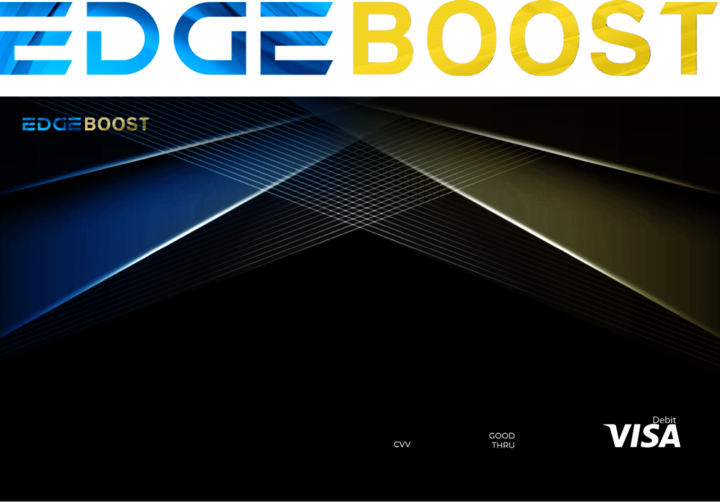The AGA’s appeal to the Trump administration may fall on deaf ears.
In +More: Oz ads breach, Hawaii sports-betting advance.
Unlikely bedfellows: Portnoy and Argentinian president wrapped up in memecoin scandal.
Alabama legislature nixes sports-betting bill.
Titus and Reschenthaler go round again with the federal excise repeal attempt.
Unlock the power of real-time Ai facial recognition with Fincore’s TRI Biometrics:
Trigger any event instantly: such as blocking self-excluded players or welcoming VIPs.
Easy Integration: Works with almost any camera, including your current setup.
Actionable Insights: Use analytics to understand customer patterns and behaviour.
Trusted Accuracy: NIST-certified for reliable performance.
Sweeps battle
Miller crossing: The American Gaming Association’s CEO Bill Miller has waded into the sweepstakes controversy, suggesting operators are “bypassing” state regulatory regimes.
Jumping through hoops: Speaking at his organization’s State of the Industry presentation, Miller said sweepstakes operators were among the “newer categories of unregulated actors that appear to bypass or circumvent state gaming, from currency exchanges to digital asset platforms.”
He added that these new entrants “deploy legal acrobatics to avoid calling themselves betting or gambling.”
However, he added they offered products that “most would universally agree are gambling, yet without the safeguards and regulatory constraints.”
Duck and cover: But the Social and Promotional Games Association hit back at Miller’s claims, suggesting his comments only repeated “many of the same tired canards about social sweepstakes that self-interested critics have peddled for months.”
“Properly operated sweepstakes are legal in almost all states,” the SPGA statement added.
“SPGA members operate within well-established legal frameworks that contrast starkly with black-market offshore sportsbooks and casinos.”
Miller argued the AGA was in a “constant battle” with offshore operators.
“They sneak in through the back door, circumventing gaming laws and operating in the shadows outside of regulatory oversight,” he said.
Loop the loop: Referencing the land-based skill games sector, he accused operators of “exploiting legal loopholes to force their products on unsuspecting communities.” He argued that over half-a-billion “unregulated so-called skill games” had spread across the US, generating $109bn in “illegal bets.”
“They’re targeting vulnerable communities, generating zero tax revenue to support local services, attracting crime and exploiting people who confuse them with legitimate gaming machines.”
Playing the Trump card: Miller also made an explicit call to the Trump administration, suggesting the AGA had previously been “frustrated” with the lack of action against illegal operators by the US attorney general.
He said the AGA was “hopeful” the new administration would treat the gaming sector “like every other legal business, and that is that we’re protected,” he said.
He called for “increased enforcement” against illegal operations that exist both inside the borders and shores of the US.
“We are hopeful that the administration will prioritise them.”
Miller didn’t reference the extent to which the Trump administration appears willing, through its appointments at the Commodity Futures Trading Commission, to countenance extending that organizations’s oversight to federally recognized sports prediction trading.
The SPGA statement made the explicit link, however, suggesting a “new, aggressive federal administration” has upended nearly long-held assumptions about the primacy of states in regulated gambling “without ever holding a hearing or passing a bill.”
“And that's just in the first 30 days.”
Notably, President Trump signed an executive order on Wednesday that claims direct presidential authority over the work of federal boards and commissions such as the CFTC.
The price you pay: Miller noted offshore gaming operators were estimated to have accepted $402bn in illegal bets last year, which resulted in a loss of $4bn in tax revenue and cost the legal gaming industry more than $17.3bn in annual revenue.
The SPGA said in response that the AGA “also knows that social sweepstakes sites don’t directly compete with traditional real-money online casinos.”
The organization cited research from EKG and Macquarie that shows iCasino growing at 29% YoY in 2024. “That’s hardly the trajectory of an industry under dire competitive pressure,” the SPGA argued.
You can mislead a horse to water: The organization also noted that AGA claims of irresponsibility by social sweepstakes operators were “misleading.”
“SPGA members operate under a published code of conduct requiring age verification, location verification, KYC systems and processes, and AML policies and processes,” the statement said.
In recent days, it has emerged that high-profile sweep operators VGW and High 5 Games have both moved to institute 21-or-over age limits on their sites.
Player Protection in New and Existing Markets Worldwide
Did you know? Mindway AI isn’t just a Danish company—it’s a global leader reshaping responsible gaming solutions across 62 jurisdictions around the world.
With solutions active in 38+ countries and available in 14 languages, Mindway AI transcends borders. We seamlessly adapt our expertise to diverse regulatory landscapes, meeting the unique needs and challenges of each area.
Learn more at mindway.ai
+More
Network Ten breached strict daytime gambling ad limits by airing four ads during Australia’s F1 coverage, the country’s federal communications watchdog said.
Gambling harms: A rise in problem gambling searches has been linked to sports-betting expansion in the US, according to a new study by researchers from the University of California, San Diego and Bryn Mawr College. “A paradigm shift in how regulatory frameworks and health organizations collaborate to address the complexities of gambling harms is needed,” the researchers wrote in the journal JAMA Internal Medicine.
Hawaii’s online sports-betting bill has advanced through another House committee. The proposals to license four sportsbooks and slap a 10% tax on revenue will now be scrutinized by a finance committee. Last week, the Hawaii State Legislature indefinitely iced plans to legalize casino gambling in the state following heavy lobbying from law enforcement and other government agencies.
Oklahoma: The three state Senate bills calling for legalized sports betting have received approval from the business and insurance committee.
Swedish industry body BOS has urged lawmakers to fix a legal “loophole” that lets unlicensed operators target Swedes with impunity by not taking the krona or using Swedish language on their websites. The association said updating the country’s Gambling Act would criminalize actions of illegal operators.
The Netherlands: The chair of the Dutch gaming regulator, Michael Groothuizen, has pushed back on the ministerial attempt to raise the legal gambling age. Groothuizen said that raising the legal age to 21 from 18 could push younger players to gamble on the black market and have no protective regulated measures.
Uh-oh: “This is not the way the lottery was designed to operate.” Texas Lt. Gov. Dan Patrick investigates the DraftKings/Jackpocket-owned retail outlet that sold a record-breaking lottery ticket. On X.
Corporate Social Responsibility Manager – Abu Dhabi
Responsible Gaming Officer – São Paulo
Senior Compliance Manager – Cyprus
Scandalous
Shit show: The founder of Barstool Sports, Dave Portnoy, and Argentinian President Javier Milei find themselves in the same boat, as each has been engulfed by the $LIBRA scandal that is rocking the memecoin landscape.
Rug rat: Last Friday, Milei posted on X about a new coin launched by a company called Kelsier Ventures. The Argentine president appeared to indicate in the now deleted text that the coin would be used to raise money for small businesses within the country.
The value of the coin soared to $4.5bn before collapsing back in what many suspect was a classic memecoin rug pull.
The scandal has led to calls for the libertarian Milei to resign and he is now facing impeachment proceedings.
Sale or return: Meanwhile, Barstool founder Portnoy also became involved in the scandal when he said on an X Spaces event that he had bought into the token on launch having already been gifted 6 million tokens by Hayden Davis, CEO of Kelsier.
He returned the 6 million tokens in the wake of the Milei reverse.
Ever the diplomat, Portnoy said: “I’m not going to tweet about this f---ing launch and act like I’m just, ‘Oh, Milei's the f---ing best’... and not mention that they have given me coins.”
“And by the way, I bought a shit-ton of it… they never gave me the coins before the launch.”
Open and shut case: Bloomberg has reported an estimated 86% of crypto traders that took positions in a memecoin endorsed by President Milei on Friday ended up losing money. Research firm Nansen said in a report that they found “very tangible on-chain evidence showing a group of ‘insiders’ unilaterally profiting off of the masses who got involved.”
“What started with a presidential endorsement and a $4.5bn valuation quickly unraveled as ‘insiders’ took profits, retail got burned and key backers distanced themselves,” the Nansen researchers wrote.
“On-chain data makes it clear that a handful of wallets walked away with millions, while most traders were left with deep losses.”
Greed is not good: While Davis has attempted to claim his links to Milei's sister are part of a smear campaign, Portnoy has ended up being branded a ‘Davey Dick Dumper’ and has ended up buying a slug of a different $LIBRA-branded coin, apparently by mistake.
Portnoy was also accused of performing his own rug pull on separate tokens he promoted on X called, appropriately enough, $GREED and $GREED2.
Alabama blues
Going nowhere: Legalized sports betting may be dead on arrival in Alabama, as a senior senator admitted it does not have enough support.
Sen. Greg Albritton told a local radio show he is “two to three” votes short of being able to pass a law out of the Senate.
Last year, two gambling bills that would have legalized online and brick-and-mortar casino gambling in the state for the first time gained momentum before legislators rewrote and then killed both near the end of the parliamentary session.
Trigger inside: Prior to the start of the current session, House leaders said sports-betting legislation had to come from the Senate.
Albritton said there was no enthusiasm for a regulated sports-betting market among colleagues, despite lawmakers themselves enjoying a punt.
“I don’t have 21 votes in the Senate. I’ve got to have 21 votes in the Senate to move this along,” he said.
“And keep in mind now, last week, before Sunday’s Super Bowl, bets were being made in the state House, I’ll say it that way, on the upcoming Super Bowl bets were being made. I think [Eagles quarterback] Jalen Hurts made a lot of money for people in Alabama in that win,” Albritton said.
GuardDog, powered by Underdog, is a pioneering investment fund dedicated to fostering innovation in responsible gaming.
GuardDog supports and accelerates early-stage startups focused on building new and creative solutions to address problem gaming and further responsible gaming.
Ready to be one of the underdogs of responsible gaming?
Visit to apply: https://underdogfantasy.com/guarddog
Excise exercise
Back to the scene of the crime: The bipartisan attempt to repeal the 0.25% excise tax has been renewed in the US House of Representatives by proponents Dina Titus, the Democrat from Nevada, and Republican Guy Reschenthaler of Pennsylvania.
The co-chairs of the Congressional Gaming Caucus introduced legislation Tuesday to repeal the 0.25% excise tax placed on all legal sports bets.
The tax was introduced in 1951 and was enacted as part of an effort to counter illegal gambling.
If at first you don’t succeed: This is the fourth attempt on the part of Titus and Reschenthaler, having introduced legislation to repeal in 2019, 2021 and 2023. The pair said their legislation recognizes the “economic importance of sports betting since its legalization in 2018.”
“The Discriminatory Gaming Tax Repeal Act of 2025 repeals a tax that does nothing except penalize legal gaming operators for creating thousands of jobs in Nevada and 37 other states around the nation,” Titus said.
“Illegal sportsbooks do not pay the 0.25% sports handle tax and the accompanying $50-per-head tax on sportsbook employees, giving them an unfair advantage.”
Black hole: Titus said she once asked the IRS officials where the revenue from the handle tax went in the federal budget and they didn’t know.
“It makes no sense to give the illegal market an edge over legal sportsbooks with a tax the federal government doesn’t even track,” Titus said.
Reschenthaler added that outdated tax codes and burdensome regulations penalize legal operators and “incentivize illegal activity.”
Clarion call: “The Discriminatory Gaming Tax Repeal Act of 2025 will ensure the gaming industry can support good-paying jobs and promote economic growth in southwestern Pennsylvania and across the nation,” he added.
“I urge our colleagues in the House to support this bipartisan legislation.”
Events calendar
Feb 26: Regulatory and compliance track, SBC Summit, Rio de Janeiro
Mar 10-13: Regulating the Game, Sydney
Mar 12-13: Next: NYC 25, RG Hub, New York
May 8-9: Leaders in Compliance Conference, Frankfurt
EDGE Boost is a dedicated bank account for bettors built to encourage Responsible Gambling. EDGE has found that financial segmentation and budgeting into a Gaming bank account is the easiest and lowest friction pathway to promote responsible behavior. As a neutral financial layer across all gaming activity, EDGE can offer: Universal Limits across all Gaming Spend, Holistic Reporting, Accountability (Weekly transaction reports to friends), Bankroll Cool Downs, and Income Verification. All this with no Operator costs or integration.
For more information, go to www.edgeboost.bet
An +More Media publication.
For sponsorship inquiries email scott@andmore.media.











